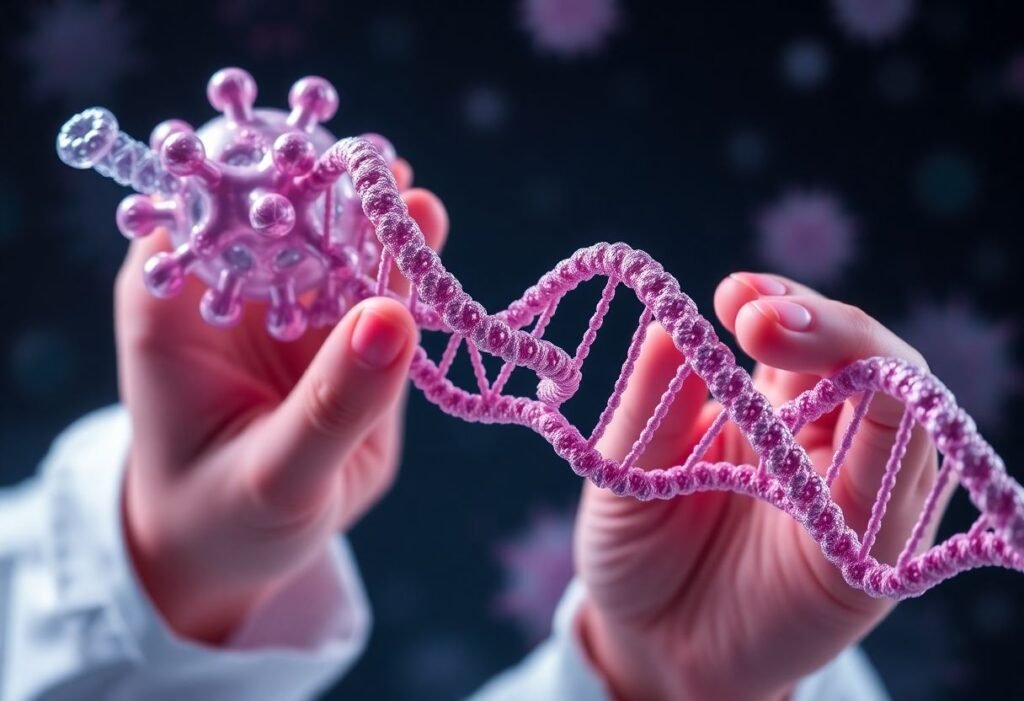The rapid advancements in genetic engineering are redefining the approaches towards addressing drug resistance, which remains a critical global challenge in healthcare innovation. By harnessing the power of genetic modification, researchers are exploring new methods that not only target resistant pathogens but also improve treatment efficacy.
The Role of Genetic Engineering in Modern Medicine
Genetic engineering plays an indispensable role in the advancement of modern medicine. With the evolution of pathogens that exhibit drug resistance, scientists are turning to biotechnology to develop novel therapeutic strategies. This innovation allows for precise targeting of harmful organisms through the modification of their genetic material. By altering genes, researchers can create medications that bypass traditional resistance mechanisms. The ability to engineer organisms to fight diseases offers a promising solution to the declining effectiveness of current pharmacological treatments.
Understanding Drug Resistance Mechanisms
Drug resistance arises primarily due to genetic mutations in microorganisms, allowing them to survive in the presence of medications that once effectively eliminated them. Understanding these mechanisms is crucial for developing effective interventions. For instance, bacteria may evolve to expel drugs or alter their target sites, rendering conventional therapies ineffective. By applying genetic engineering techniques, scientists can study these mutations at the molecular level, leading to the development of specific inhibitors that can target these resistant strains. This research not only enhances our understanding of drug resistance but also paves the way for innovative treatment models.
Innovative Approaches to Combat Drug Resistance
Researchers are investigating various innovative approaches facilitated by genetic engineering to combat drug resistance. One promising method is the use of CRISPR technology, which allows for precise genetic modifications. By using CRISPR, scientists can edit the genomes of pathogens to reverse their resistant traits, making them more susceptible to existing drugs. Such techniques hold immense potential in creating tailored therapies that could effectively tackle resistant infections, thereby improving patient outcomes and reducing the burden on healthcare systems globally.
Personalized Medicine: A Game Changer
The advent of personalized medicine, driven by genetic engineering, is transforming how we approach treatment for drug-resistant diseases. By analyzing the genetic profile of both patients and pathogens, healthcare providers can customize therapies that are specific to each individual’s circumstances. This targeted approach not only enhances the effectiveness of treatments but also minimizes adverse effects, which is particularly important in cases involving resistant infections. The integration of genetics into medicine ensures that therapies are as effective as possible, paving the way for innovative solutions to complex health challenges.
Challenges and Ethical Considerations
Despite the promising advancements in genetic engineering for drug resistance solutions, there are significant challenges and ethical considerations that must be addressed. Issues surrounding safety, the long-term effects of genetic modification, and the potential for unintended consequences must be carefully considered. Moreover, equitable access to these innovative therapies is crucial to prevent widening health disparities. As the field of biotechnology continues to evolve, it is imperative to foster discussions that ensure these innovations are developed responsibly and accessed fairly by all populations.
The Future of Genetic Engineering in Drug Development
The future of genetic engineering in drug development looks promising, particularly in the context of drug resistance. As we enhance our understanding of genetic modifications and pathogen behavior, new and more effective solutions will emerge. With ongoing research and development, biotechnology is positioned to revolutionize treatment protocols, not only for drug-resistant infections but also for a myriad of other health conditions. The integration of genetic engineering into clinical practice signifies a hopeful pathway towards eradicating resistant ailments and improving global health.
Disclaimer: The contents of this article are for informational purposes only and do not constitute medical advice. Always consult healthcare professionals for medical concerns.





















